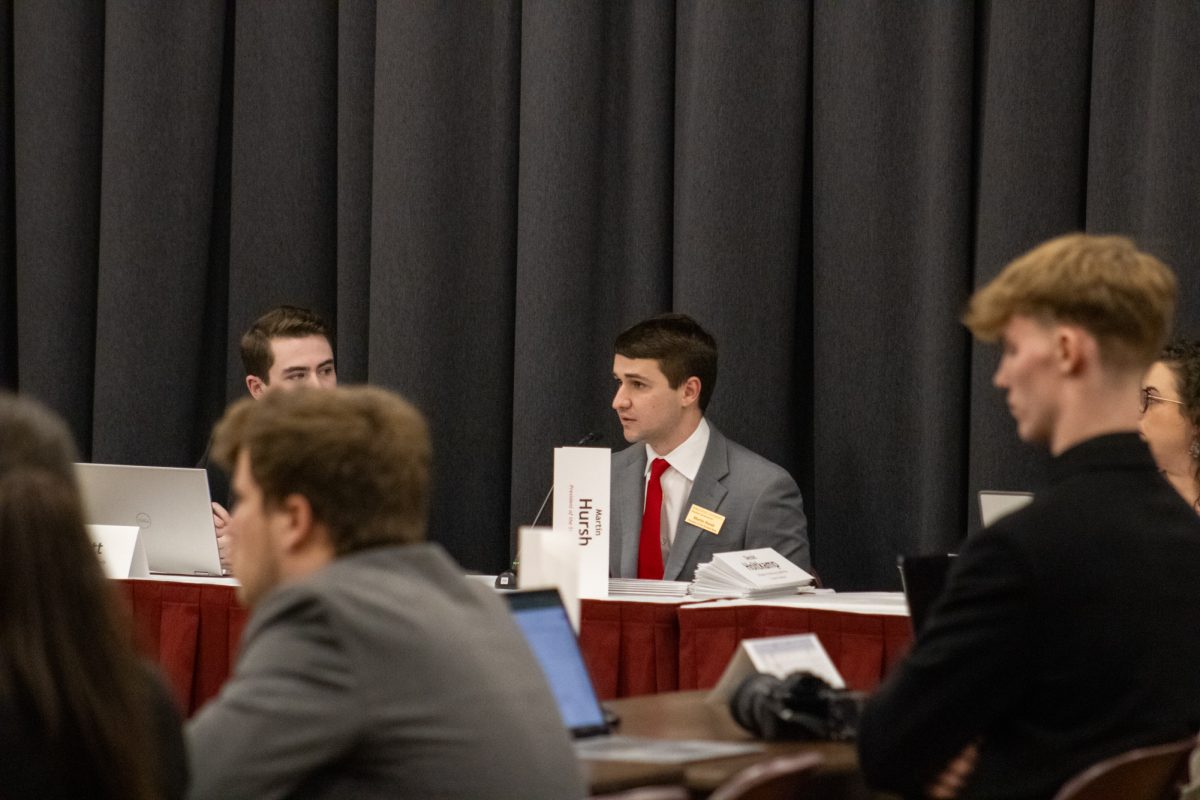Rock ‘n’ roll fuels cultural revolution
January 31, 2007
A Belarus-born ethnomusicologist and associate professor of music at Wartburg College gave a lecture Tuesday about the importance of rock music in reaffirming nationalism in Belarus.
Maria Paula Survilla explained that under the tight hand and watchful eye of Soviet legislation, rock music and rock musicians in Belarus began a revolution that brought the native culture, language and native identity back into the suppressed public eye in the late 1980’s and early ’90s.
The music, sung in Belarusian, not Russian, was a stark declaration of nationalism. The lyrics are steeped with thinly veiled allusions to Belarusian culture. The music, although subversive, fostered a sense of cultural pride and exploration.
“The language is very important in Belarusian rock,” Survilla said. “Everything is symbolic.”
Music, as a direct product and outlet of culture, is relevant in this situation. Belarusian President Alexander Lukashenko, who came to power in 1994, subsequently banned most aspects of traditional Belarusian culture; which included changing the flag and the postal system. Survilla showed a slide of Lukashenko appearing on a stamp, superimposed on the “new” flag.
Underground pamphlets, quietly supporting an overthrow of the government, sport slogans like “Protect the language of your forefathers. Use it!” and “Support Freedom, Support Belarus, and Support Rock!”
The music and packaging are vehicles for rebellion, utilizing a wide range of images, from those of Chernobyl and the outlawed Belarusian flag, traditional religion and verse.
The music sometimes takes its cues from the West, sounding almost identical to popular songs. Survilla played examples of songs that took their melodies from The Beatles’ “Penny Lane,” and The Animals’ “House of the Rising Sun.”
The musical revolution extends to modern times and is performed under the fear of reprisal, Survilla said.
“The soundscape is informed by the political landscape, and the music is conceptualized and performed under political censorship,” Survilla said.
Cristina Rodriguez, senior in architecture, attended the lecture. She said that it was an opportunity to see a culture that isn’t part of the norm.
“It was a nice opportunity to learn about Eastern culture that we don’t see on a daily basis and aren’t exposed to usually,” Rodriguez said.
Martina Foss, graduate student in architecture, echoed these same thoughts and found the lecture stimulating in an architectural sense.
“The rockers’ use of tradition, wanting to the identities of things [such as the flag] to assert themselves was interesting,” Foss said.






